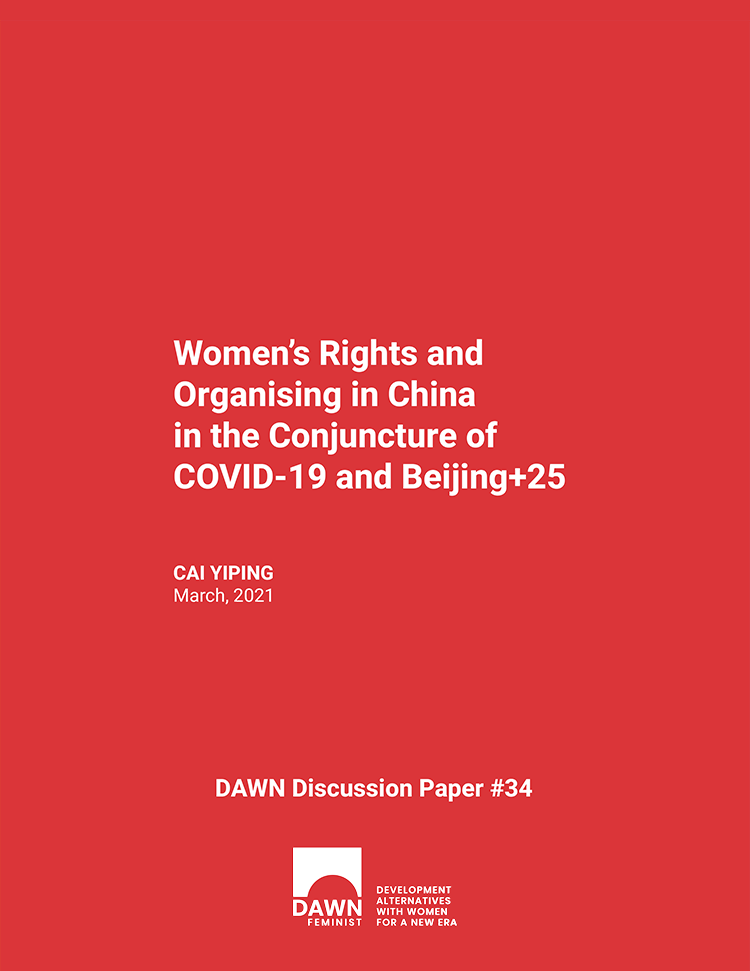2020 was an unusual year for everyone. For Chinese women, there were two events that were particularly important. The first was the COVID-19 pandemic that posed tremendous challenges and called upon the immediate and effective response from governments, intergovernmental institutions, business sectors, science and research communities and societies at large. In China, like everywhere else in the world, women were undoubtedly fighting at the forefront and their contributions and essential roles were never made so vivid and visible as during the pandemic. According to official sources, by March 8th 2020, women made up two-thirds of the 42,000 medical workers who travelled to Wuhan and its surrounding province, Hubei.1 China would not have been able to achieve the results in epidemic prevention and control without the participation and contribution of women as health workers, social workers, caregivers, volunteers, scientists and researchers, journalists, service providers, in the family, community and every aspect of society. The second event was the commemoration of the 25th anniversary of the United Nations Fourth World Conference on Women held in Beijing, China in 1995 (Beijing+25). Although many forums and events originally planned to commemorate Beijing+25 at global, regional, and national levels had to be cancelled or postponed due to the COVID-19 outbreak, several events on Beijing+25 did take place,
1- http://www.gov.cn/xinwen/gwylflkjz48/index.htm
DAWN Discussion Paper / 2021 4 including conferences organised by international organisations, government, women’s NGOs, and research institutes. Government policy brief, research papers and media reports on Beijing+25, women and development, and women’s human rights provided new momentums for the refocusing and repositioning of women’s development and gender equality agenda in mainstream media and the political agenda in China. This is best manifested in Chinese President Xi Jinping’s speech at the high-level meeting at the 75th session of the UN General Assembly held on October 1st, 2020, which marked the 25th anniversary of the 4th World Conference on Women in Beijing 1995. Xi reaffirmed that equality between women as a basic state policy in China and committed to working towards building a world in which women are free from discrimination as well as a society of inclusive development. He called for actions to address the special needs of women and deliver on the Beijing Declaration and Platform for Action, which included:
(1) minimise the impact of COVID-19 on women; (2) strive for genuine gender equality;
(3) ensure that women advance at the forefront of our times; and (4) enhance global cooperation in advancing women’ development. There is no better time than now, in the conjuncture of COVID-19 and Beijing+25, to reflect on the status of Chinese women’s movements and organisations and prospects for the future.

